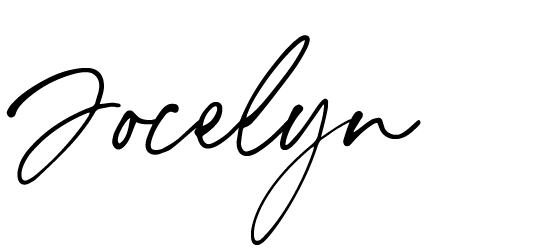Five Questions with Janice Llamoca
Janice Llamoca is a Digital Media Editor for The Futuro Media Group, where stories and issues that are often overlooked by mainstream media go noticed. NPR, also, hosts their weekly radio program "Latino USA" and they also produce America By The Numbers with Maria Hinojosa, In The Thick, and Humanizing America.
From Los Angeles to New York City, Janice has been all over the broadcast journalism spectrum and now that she's here, as a multi-media journalist, she shares some insight on her career journey.
How did you get to where you are now?
I’ve always been like, “I want to work there,” and at least 80% of the time I’ve gotten to work where I’ve always wanted to work, so I think I’ve been lucky like that. But I don’t know if it’s luck because I really, really bugged one of the producers on the show. I was getting my master’s degree in Barcelona and I really wanted to work in a different type of journalism – I was doing music journalism for a while – and I just wanted to do different types of stories. I didn’t want to do just music. I wanted to do culture and I wanted to do Latino focused stories. I heard Latino USA and from Barcelona I would be emailing the producer, the one in charge of interns, like, “Hey, I want to move to New York and I want to work for you guys. When are you hiring? Or when can I become an intern? I will move out there.” I kept emailing her over the course of a year or so while I was living abroad. We interviewed over the phone and then I moved to New York a few weeks after I moved back to the United States. I loved what they did and I just wanted to be there and learn from them and grow there. Look what happened! Now, I work there.
If I want to work there, I’ll find a way in. I may not be 100% qualified, but I will get in and I’ll show you want I can do.
— Janice Llamoca
It’s happened multiple times, like with MTV and Power 106 [in Los Angeles]. I’ve always been like, “I’m going to work there. I’m going to find my way inside.” Thankfully, I’m a very persistent person, so if you tell me, “No,” I’m going to keep bugging you until you let me in. I’ve always been that way. Even at a higher level, I’m still the same way. If I want to work there, I’ll find a way in. I may not be 100% qualified, but I will get in and I’ll show you want I can do.
What three people (or things) would you attribute your achievements to?
Kathy Iandoli is the one that pushed me to write. She was my editor at HipHopDX. She pushed me to write when I wasn’t a paid writer. She really believed in me and really thought I was a good writer, so she gave me a platform and gave me huge interviews to start off with. I proved that I can do it. I can hold a conversation with anyone but it was so intimidating to hold it with your favorite producer as your first interview. My first interview was with Just Blaze. It was different. It was new.
Second, persistence. You can’t tell me what I can’t do. I’ll do it because I’m stubborn, and I like to prove people wrong all the time.
The third would be being able to wear many hats. I call myself a multimedia journalist because I’ve done radio, video, print and writing… I’ve done every form of journalism and I love them all. I’m telling stories with all of them and that’s what I love about it. I’m able to code HTML and I’m able to hold a microphone and edit on Pro Tools and edit videos. I can do it all. My goal is just to get stories out.
What top three lessons have you learned from your career journey?
I definitely learned that it is okay to ask for help because I never used to ask for help. Even as a kid, I never asked for help with my homework. Asking for help or asking a colleague to look over something for me or even just asking a colleague for the email for an editor. I’m not afraid to ask anymore, because I know that if someone asked me, I would gladly help them.
Knowing the value of a mentor and finding one you vibe with, one you can share your work with and someone who really roots for you, I think that’s so important.
— Janice Llamoca
I also learned that it’s okay to not be 100% perfect in the beginning. You’ll get there. You have to start somewhere. If you’re a perfectionist – it’s going to be super hard on you. But if you’re willing to mess up and just get back up and continue, fight the good fight and get your assignments done, meet your deadlines, you’ll be fine.
I really value having a mentor because that was something I wasn’t brought up to think about. Seeking advice from people who have been there really helps. I’m so thankful for them because without them I would be lost, confused and insecure. It’s great to have a good, strong network of women in this field. Knowing the value of a mentor and finding one you vibe with, one you can share your work with and someone who really roots for you, I think that’s so important.
Why do you love what you do?
I love what I do because I get to tell the stories of people who normally don’t get their stories told. I’ve worked with celebrities and I’ve worked with artists. I’ve interviewed them and told their stories. They always and will always have a platform but... it’s the old man who lives in the floor beneath me, the woman who’s been running her business for years or whatever! Those are voices that you might not ever hear in the media or ever read about and to me, those everyday stories mean so much more to me now.
I think just being able to get those stories out, stories of everyday people – I value them. Everyone has interesting lives, not just celebrities. The shows my workplace produces get those stories out and it literally makes me feel so proud of all of them and it makes me feel so good. Even if I work long hours like I did today or yesterday, at the end of the day, I’m always like, “We’re telling great stories and I feel good about myself and everything we do.”
What's the reality of your career? What sacrifices did you have to make?
The long hours. We’re a small company so we all work long hours, but we’re telling important stories and I think that overrides how tired we feel. When I worked in entertainment people thought it was glamorous and it was parties and stuff. In reality it was long hours of transcribing and extra hours of writing. It was long wait times on the red carpet, under the sun. It was fun in the sense that we were working in music but it wasn’t party and glamorous all the time. And now, it’s less glamour. Literally I went from glamorous to 5% glamour. Entertainment made me happy but this makes me happy.
Someday I’ll go back [home] and when I do I’ll stay, but this time, I’m going to be selfish. I’m going to keep doing what I do and work as hard as I can to get where I want to be.
— Janice Llamoca
Moving to New York - first of all the rent is insanely high but I come from Los Angeles so it wasn’t that shocking to me. But I think leaving a life behind to better your career is really hard because I had everything back home. Everyone thinks it’s glamorous to live in New York, but it takes a lot of work to live here. Even if it’s just doing your laundry, because sometimes you have to carry your load around the corner and most likely, you’ll live in the building that doesn’t have elevators and you’re walking up five flights. I think those things kinda set in the reality. I think people see New York and they think, “Oh they all live in nice buildings with a doorman.” It’s like, “Noooooo, we all don’t.” Also, just pursuing something you want to do and leaving your family behind. You miss birthdays, you miss holidays, but I came here with a purpose and I think that’s why I’ve been okay. Someday I’ll go back and when I do I’ll stay, but this time, I’m going to be selfish. I’m going to keep doing what I do and work as hard as I can to get where I want to be.


